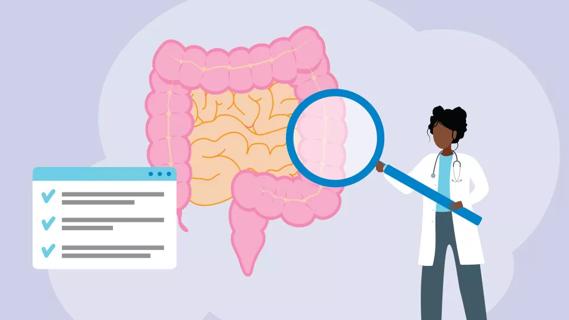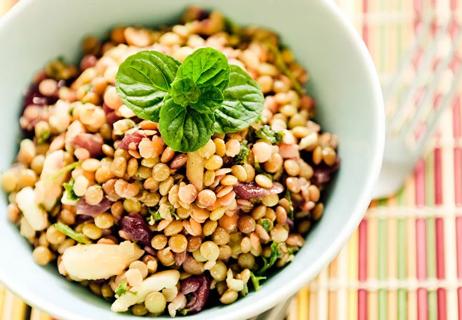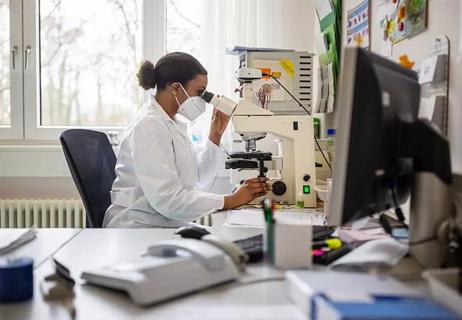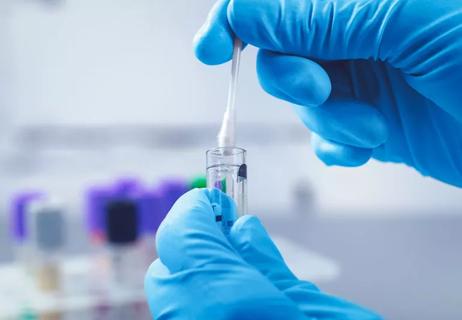Knowing your family history and getting a genetic test can help detect colorectal cancer earlier

Is colon cancer hereditary?
Advertisement
Cleveland Clinic is a non-profit academic medical center. Advertising on our site helps support our mission. We do not endorse non-Cleveland Clinic products or services. Policy
Just like freckles, curly hair and green eyes, you can inherit colorectal cancer from your biological parents. It’s important to know if it runs in your family because inherited colorectal cancers:
“Depending on the particular syndrome you have, you also may be at high risk for cancer in other organs, such as your stomach, small intestine, bladder, skin, brain, uterus or liver,” says David Liska, MD, a colorectal surgeon and expert in inherited colorectal cancer.
Are you and your family at risk? Here’s how to know and what to do about it.
Only about 5% of colorectal cancers are inherited as part of a syndrome. They’re rare. But if someone in your family has one — particularly a parent or sibling — you have a higher chance of getting it, too.
The first clue that colorectal cancer could be inherited is when someone younger, under the age of 50, gets it.
“Whenever we see someone under age 50 with colon or rectal cancer, we refer them for genetic testing,” says Dr. Liska.
The next clue is a family history of colon cancer. Having a parent, sibling or child with the disease increases your own lifetime risk from about 5% to 15%.
Advertisement
If your relative with cancer is younger than age 50, your risk is even higher. And if you have more than one first-degree relative with colon or rectal cancer, your risk rises even more.
“A strong family history of colorectal cancer, or even advanced precancerous polyps, may also be an indication for genetic testing,” notes Dr. Liska.
Approximately 10 inherited disorders can cause colorectal cancer, including:
Advances in technology have changed genetic testing dramatically. It’s now much more affordable and readily available.
With genetic panel testing, one test sequences all known genes that might cause inherited colorectal cancer. If a mutation is detected, all of your at-risk relatives should have genetic testing, too.
The goal of testing is to identify those who carry a cancer-associated mutation. These are the people who need to take more aggressive steps to prevent cancer, which includes frequent cancer screenings.
“If there are young children in the family, we may not test them immediately, but rather wait until they reach puberty or young adulthood,” says Dr. Liska.
For some, the thought of genetic testing can feel overwhelming or scary. Some choose to forego genetic testing because they don’t want to have to worry about the results. But Dr. Liska feels the benefits of knowing the results far outweigh the chance of not knowing and developing the disease later on.
For example, if the test shows you don’t have the gene mutation, you won’t need to have the screenings — like frequent colonoscopies — required for those who do.
“It’s always good to know your risk because it can help direct your care,” he adds. “For some, genetic testing and preventive care is the way to survival and a good quality of life.”
If someone in your family had or has colorectal cancer and a genetic mutation detected on blood or saliva testing, get yourself checked, too.
Part of your care should involve talking with a genetic counselor, who can educate you on the disease, its risks and appropriate steps.
But above all, don’t jump to conclusions, cautions Dr. Liska. Just because one of your relations has inherited colorectal cancer, it doesn’t automatically mean you’ll get it as well. (That’s where genetic testing and counseling come in.)
“The affected bloodline has to run through you,” he explains. “It helps to draw a family tree.”
Advertisement
And even then, not all inherited colorectal cancer syndromes work the same.
Some, like familial adenomatous polyposis, are dominantly inherited, meaning you need only one parent to pass on the mutated gene to get the disease. These diseases have the strongest family history, sometimes spanning generations. Each child of an affected parent has a 50-50 chance of inheriting the mutation and disease.
Other syndromes are recessively inherited, meaning you need both parents to pass on a mutated gene to get the disease. If you receive only one, you won’t have the disease but will be a “carrier” — and could help pass it along to your child. These inherited colorectal cancers tend not to have a strong family history because most family members who have one mutation don’t have the disease.
If you test positive for an inherited colorectal cancer syndrome, seek a gastrointestinal specialist who’s experienced in treating inherited colorectal cancers. It’s not the same as treating regular colorectal cancers, clarifies Dr. Liska.
Getting a genetic test is the simplest way of knowing your chances of inheriting the disease, but you should also get a colon screening. Although current guidelines suggest getting screened for colorectal cancer at age 45 and above, you can talk to your doctor about whether you should be screened earlier, especially if you have a family history or a positive genetic test.
Advertisement
But beyond screenings and tests, there are other things you can do to reduce your risk for colorectal cancer, including limiting red meat and high-fat or processed meats, doing 30 minutes of moderate-intensity exercise five days a week and quitting smoking.
Advertisement
Learn more about our editorial process.
Advertisement

Chronic inflammation from flare-ups can damage the lining of your intestinal wall, making your colon more vulnerable to cancer

If you’re at average risk, it’s recommended that you get your first colonoscopy at age 45

It’s a slow-moving process that offers an opportunity for early detection and treatment

Family history matters for melanoma, but the connection isn’t as strong for other skin cancers

The differences between identical, fraternal and six other types of twins

From blackberries to barley, healthy high-fiber foods are plentiful

It can help determine a best treatment path

Genetic markers can determine if you’ll develop Huntington’s disease or pass it on to your children

Type 2 diabetes isn’t inevitable with these dietary changes

Applying a hot or cold compress can help with pain